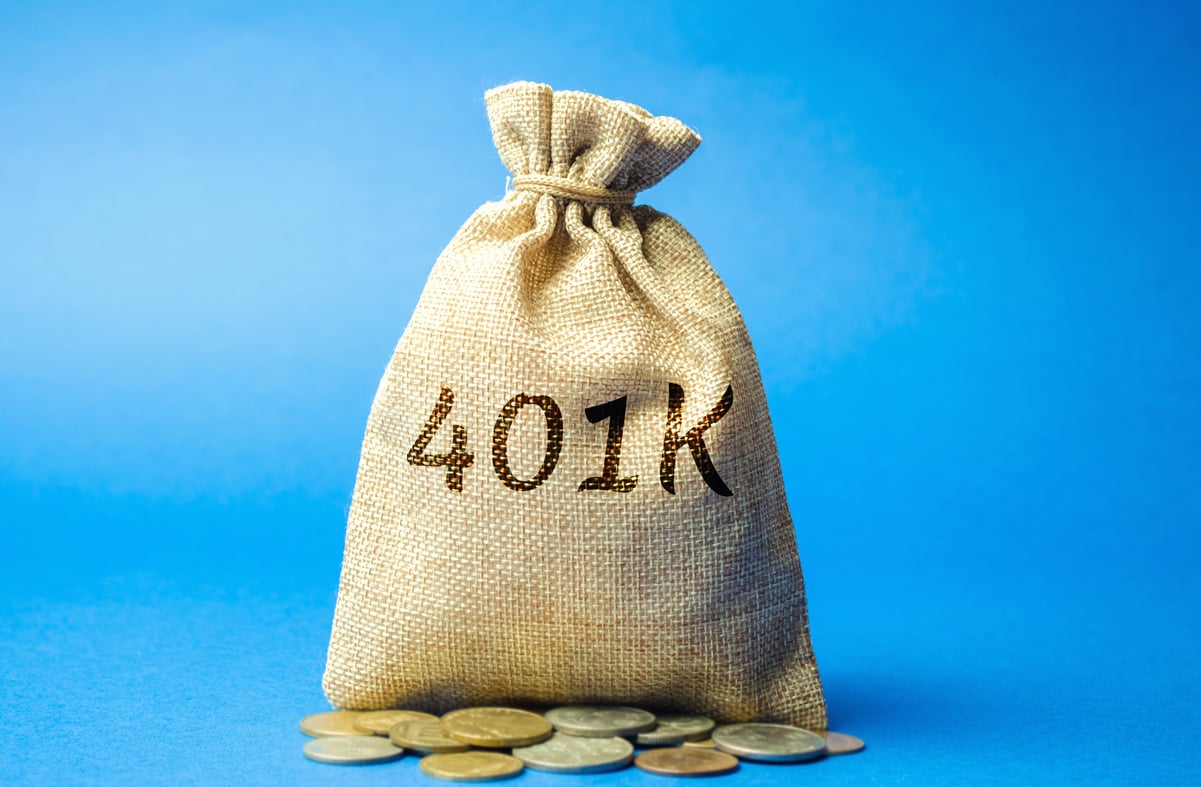Whether you realize it or not, Social Security is likely going to be a vital source of income when you retire. Of today's retirees, 62% lean on their payout to account for half of their monthly income, with national pollster Gallup finding that 90% of current retirees count on their monthly stipend as either a "major" or "minor" source of income. Put in another context, just one out of 10 seniors could go without their Social Security payout right now without any financial concerns.
But this isn't just limited to those folks who've already called it a career. When Gallup polled nonretirees, a whopping 83% noted that they expect to be reliant on Social Security as either a "major" or "minor" source of income when they retire. That's only 1 percentage point below an all-time high for Gallup's annual survey.
With these statistics in mind, you can understand why choosing the right Social Security claiming age can be so important.

Image source: Getty Images.
Should seniors consider a side hustle during their golden years?
Yet, there's another question seniors often ask themselves these days: Should I seek out a side hustle while collecting a Social Security benefit?
Though working full-time may be an option for some folks, the idea of turning a hobby you enjoy into an income stream (i.e., the side hustle) is something roughly 1 in 5 American adults -- 44 million people -- are doing today. And side hustles are certainly not limited to traditional working-age Americans.
But is it for you?
Let's take a closer look at a handful of smart reasons to consider a side hustle, as well as one sizable negative to collecting a Social Security benefit concurrently with a side job.
Three reasons a side hustle could be a smart idea
Keeping in mind that your physical and mental health are paramount, the ability to generate income from a hobby can actually work in seniors' favor in three ways.
For starters, it's important to realize that Social Security doesn't pay a lot on a monthly basis. As of July 2019, the average retired worker was only bringing home $1,472.16 a month, or roughly $17,666 a year, which isn't really that far above the federal poverty level. The Social Security Administration (SSA) advises that the program will replace about 40% of the average workers' wages. In other words, it's not designed to be a primary source of income, and trying to live off Social Security as your only source of income could be very difficult, if not impossible.

Image source: Getty Images.
A second smart reason a side hustle could be for you is the fact that the purchasing power of Social Security dollars has been steadily declining over time. An analysis by The Senior Citizens League found that the purchasing power of Social Security dollars has dropped 33% since 2000. The blame can be placed on Social Security's inflationary tether, the Consumer Price Index for Urban Wage Earners and Clerical Workers (CPI-W). The CPI-W tracks the spending habits of working-age urban and clerical workers who spend their money very differently than the more than 70% of seniors who make up Social Security's beneficiaries. This leads to cost-of-living adjustments that simply don't keep up with the inflation that retired workers are facing.
A third reason you might want to seriously consider a side hustle is to pay down debt. More seniors than ever are retiring with mortgage debt and student loan debt -- and the percentage retiring with student loan debt only looks to get worse as time passes. A side hustle would help tackle these added expenses, as well as reduce your dependence on Social Security to make ends meet.
Here's one reason why a side hustle could be a headache
On one hand, doing something you enjoy, and reaping the rewards of your hobby with extra cash each month, could turn out to be a great thing considering that Social Security is really designed to be a secondary income source. But, there is a downside you'll need to be aware of: the retirement earnings test.
If you're under your full retirement age (also known as "normal retirement age by the SSA) and have begun taking your benefit, you may be subject to the retirement earnings test. This is a fancy way of saying that the SSA can withhold some, or all, of your benefit check based on your income. As soon as you reach your full retirement age, the retirement earnings test no longer applies (regardless of when you first begin taking benefits).

Image source: Getty Images.
In 2019, a Social Security beneficiary whose yet to reach their full retirement age, and won't this year, can only earn up to $17,640 ($1,470) before benefit withholding will begin. For every $2 in earned income beyond $17,640, the SSA will withhold $1 in benefits.
Comparatively, if you're already taking your payout and will reach full retirement age in 2019, you can earn up to $46,920 a year ($3,910 a month) before withholding begins. In this instance, $1 is withheld for every $3 in earned income above $46,920, up until you reach your full retirement age.
The point being that if you choose to do what a majority of people do -- take your Social Security benefit before reaching your full retirement age -- and you add income from a side hustle, there's a growing possibility that your attempt to "double dip" with extra income may backfire and result in the SSA withholding some or all of your benefits. Mind you, these withheld benefits aren't lost forever. You'll get them back in the form of a higher monthly payout once you reach your full retirement age. However, it can come as a surprise to folks who expect to keep all of their benefits and job-related income and immediately put that money to work.
Is a side hustle right for you while taking Social Security? Knowing the pros and one big con, that's up to you to decide.





